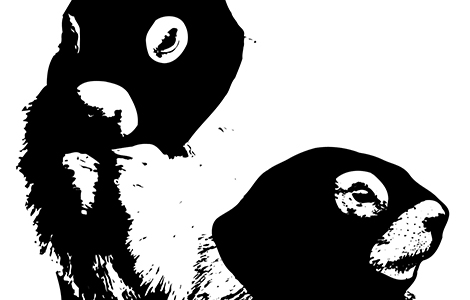
Brave New alps is the collective name under which Bianca Elzenbaumer and Fabio Franz have collaborated since 2005. Brave New Alps are designers committed to exploring the cultural, economic and political value of design, and its capacity to question our surrounding realities and to proactively suggest alternatives.
Communication and design for participatory regional development
Brave New Alps, together with the association Adam&Epfl, will run a two-day workshop open to 16 participants to envision sustainable developments for the South-Tyrolean upper Vinschgau valley, which is undergoing drastic changes in agricultural practice. What would a paradisal upper Vinschgau look and feel like? What economic activities could sustain a desirable quality of life in the valley? By what means can destructive seductions be resisted? How to make the ongoing process of transformation a participatory and pro-positive one?
SUGGESTED BOOKS


Interesting questions / statements
In a complex world dominated by hegemonic ideologies of neoliberal capitalism, is it really possible to intervene and deliberately shift technologies, practices and social arrangements altogether on a more sustainable track? (Elizabeth Shove and Gordon Walker)
I don’t like the word sustainability very much. The reason is that nobody as far as I know is in favour of “un-sustainability.” So sustainability tends to mean almost anything you want it to mean and I think we should be rather more specific than that. The other problem is that sustainability sometimes sounds a bit too passive and static and I think throughout history we transformed our relation to nature, sometimes in good ways, sometimes in bad ways and I think the question for us is how we are going to transform our relation to nature in the future. So I would rather think about a transformative politics in terms of our relation to nature, but you can’t transform that relation without also transforming social relations between each other. So for me, the social project is one of social transformation, including the transformation of our relation to nature. (David Harvey)
For whom is the system more benign, by whose measure, and across what space and scale? (Elizabeth Shove and Gordon Walker)